
Hi! You have been organizing translation workshops lately. What is the underlying reason for these activities?
It’s simple: I can’t sit idly by and watch the quality of translated books in particular and the quality of Vietnamese in general decline. Many people have said this for a long time. I have to do something to help fix and improve the translation situation and the Vietnamese language situation, because I am a long-time professional writer, translator, and editor.
My hope is that, after taking my course and sharing my professional experience, awareness and thinking, some people, especially young people, will be more determined and strong in self-training to become truly proficient in translation, respecting and understanding Vietnamese.
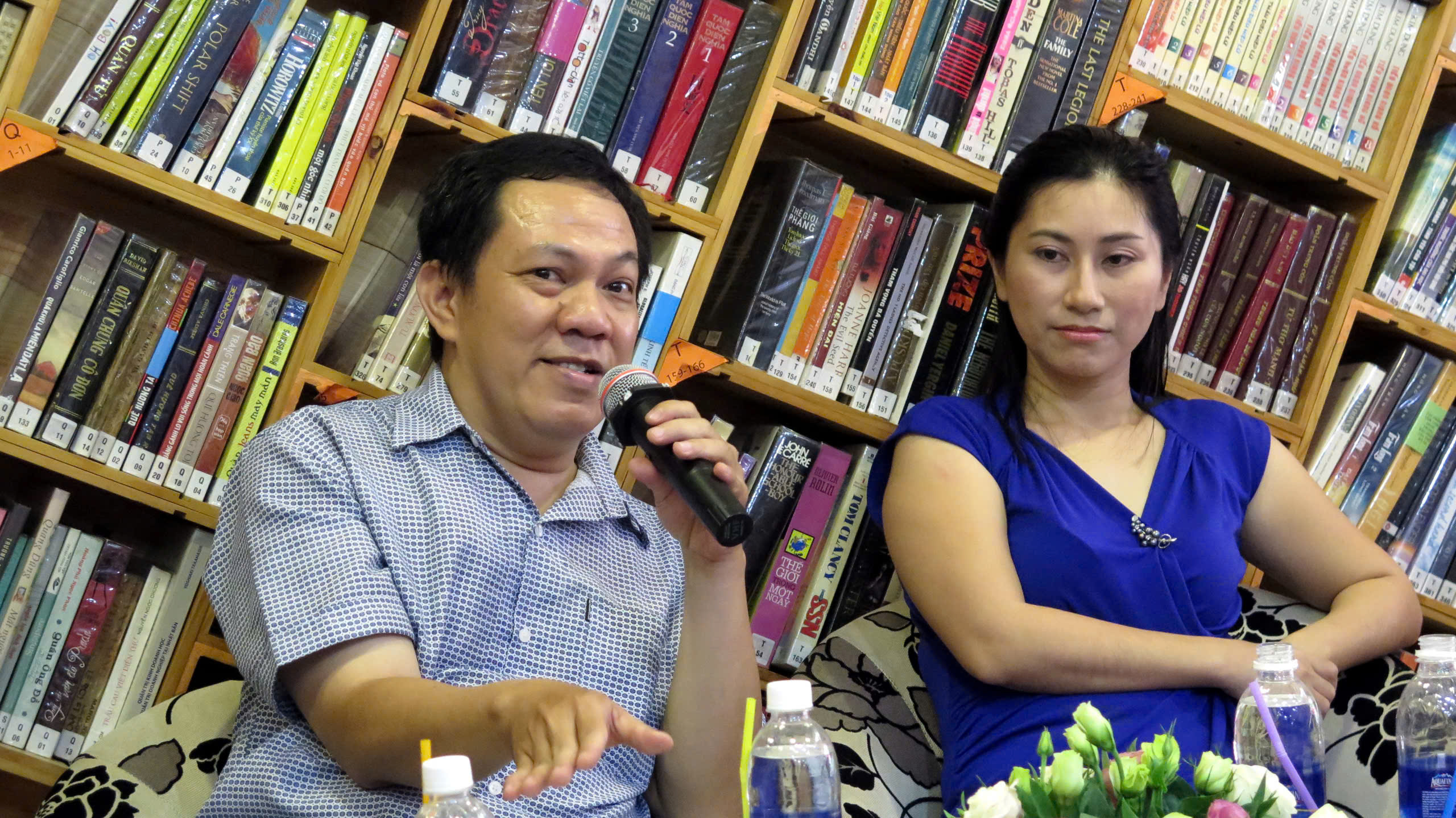
According to writer and translator Tran Tien Cao Dang, exporting Vietnamese literature abroad is first and foremost the job of the publishing industry.
How do you evaluate the access of Vietnamese readers to translated books in the first 20 years of the 21st century? Did the debates about "trustworthiness - accuracy - elegance" in translating novels in the past contribute to promoting the development of translated works?
My assessment is certainly somewhat biased and subjective, because I cannot claim to have an overview of the entire picture of translated books. However, within the scope of my observation, in recent years there have been some good quality translated books. It is worth mentioning that almost all of these books are the products of some more or less famous translators who have established themselves as trustworthy translators. Many readers tell each other that they will only buy books when they see the names of these translators on the cover. They are not without reason. Quite a few other translated books, with "strange" or even relatively familiar translator names, have disappointed readers, to a greater or lesser extent.
On the other hand, when talking about translation, we should not limit ourselves to translated books. The picture of translation also includes translation in mass media (hereinafter referred to as media), film subtitle translation, etc. In these areas, especially media, the quality of translation is even worse. Sadly, no matter how many debates there have been about translation quality in the past, the situation has not improved but has actually deteriorated.
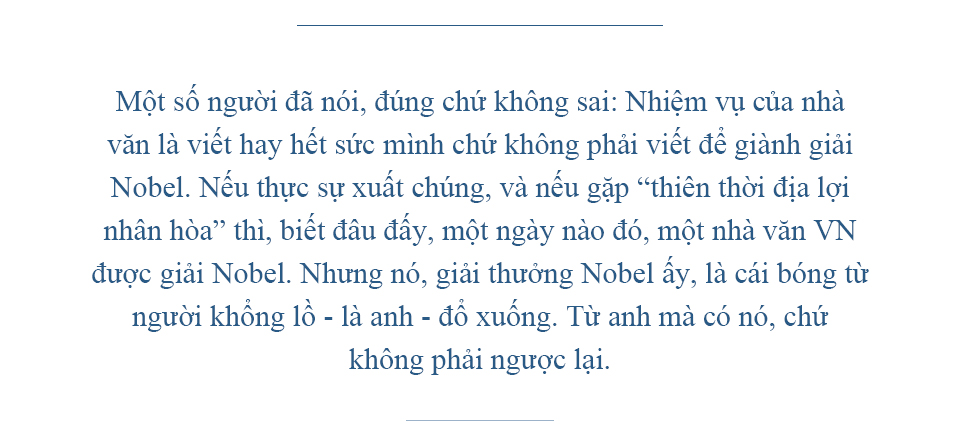
There seems to be a paradox, that is, compared to the previous era, people have more and more conditions to learn foreign languages and become good at foreign languages. Is there no bright prospect for translation, for example the case of Nguyen An Ly receiving a translation award in the US?
Nguyen An Ly's case is a bit different, which is a reverse translation from Vietnamese to English. However, looking at the whole picture, we see that this incident contributes a bright spot to the picture of the translation situation in our country: that is, while the "import" book sector is still full of problems, the "export" book sector is starting to make new progress in a positive direction.
As someone who has worked in the publishing industry for many years, what do you think about the imbalance in the exploitation of translated literature and domestic literature? If we say that the publishing industry mainly focuses on translating foreign works and has no interest in exporting Vietnamese literature to the world , do you agree?
When it comes to Vietnamese literature, foreigners, first of all Westerners, only know and think of a few names: The Tale of Kieu by Nguyen Du, The Sorrow of War by Bao Ninh... An author considered a "great man" in Vietnam like Nguyen Huy Thiep, average literary readers in the West have almost certainly never heard of him. A handful of researchers, mainly those who are especially interested in Vietnam, are not mentioned. That is the sad picture that people in the Vietnamese publishing industry are willing to admit. However, they do nothing, or almost nothing. While logically speaking, exporting Vietnamese literature abroad is first and foremost the job of the publishing industry. If they don't do it, who will?
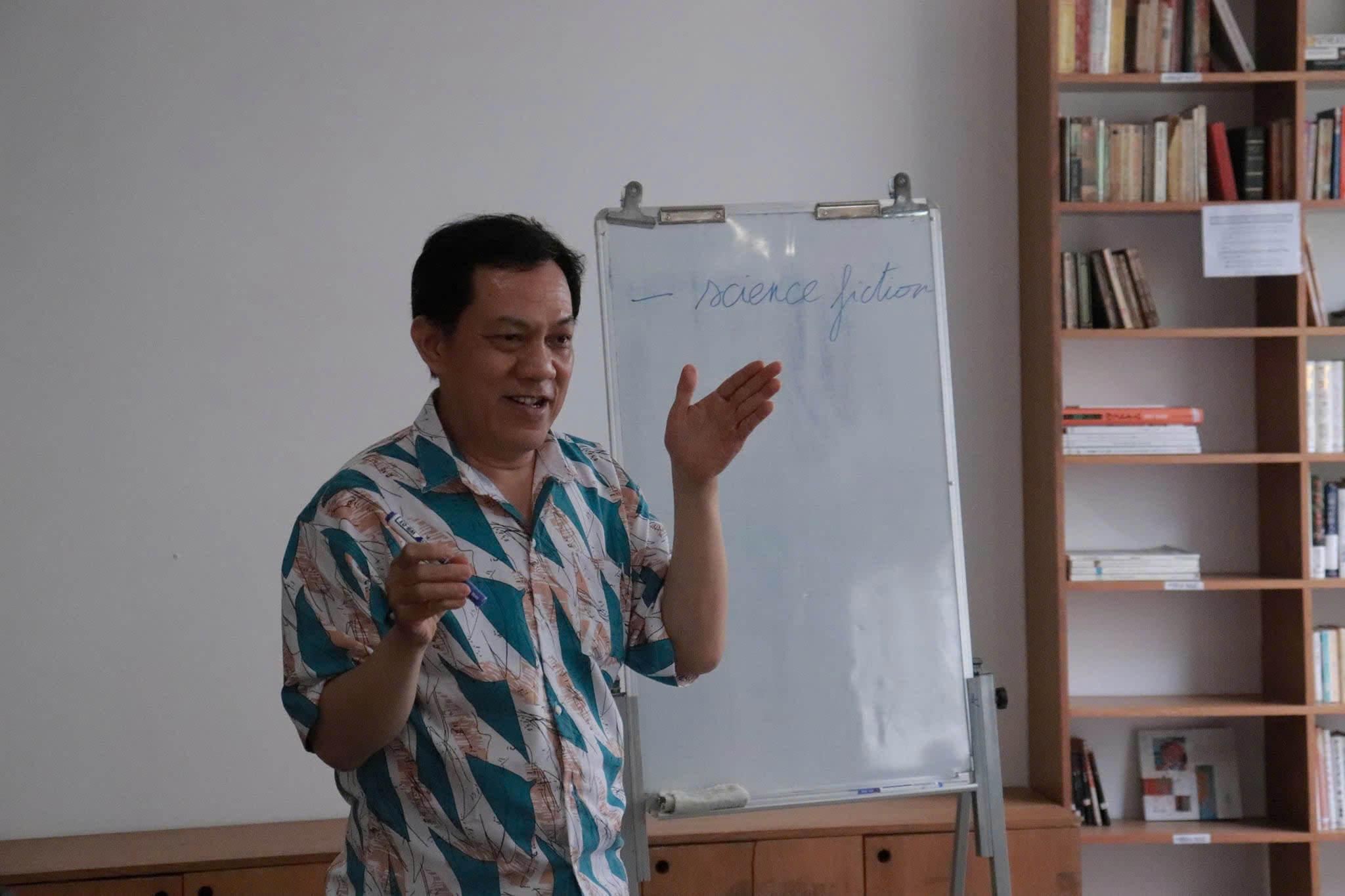
When talking about translation, it should not be limited to translated books but also include translation in mass media.
At international book fairs, according to your observations, what is the position of literature in the Southeast Asian region, including Vietnam?
I have not had the opportunity to attend international book fairs in person, however, as far as I know, Indonesia was the guest of honor at the Frankfurt International Book Fair in 2015. Indonesia is a Southeast Asian country, with historical, economic , and social circumstances relatively close to Vietnam (unlike Korea and Japan). For a long time, Vietnamese people have been used to "looking up", only comparing themselves with European, American, and East Asian powers. It is time for us to "look sideways" more. When will it be Vietnam's turn to be the guest of honor at the Frankfurt International Book Fair, the Bologna International Book Fair...?
This fall, I participated in a 2-month writing program in Shanghai for 7 international writers, and had the opportunity to meet some writers from countries with strong publishing industries or large language areas such as Japan, Turkey, Austria, Brazil, etc. I noticed that in those countries, they all have funds and policies to support the translation of their authors' works. Do you think it's time for Vietnam to focus on translating domestic works?
Who specifically is "Vietnam" here? The State? If out of the 112,000 billion VND "investment in cultural development" that the National Assembly has just approved, about 1/1000 (112 billion VND) is reserved for exporting Vietnamese literature, that would be great. However, even if that were true, there would still be a huge, difficult-to-answer question: How will that 112 billion be managed and regulated to ensure that it is spent for the right purpose, fairly and honestly? And what about the publishers? Let's see what they have done, what they are doing. I don't have much faith that, in the near or distant future, publishing units will make a little more moves in exporting Vietnamese literature. The reason? Simple: Because it is a high-risk business: the investment is not small, the prospect of profit is too fragile. To be fair, their choice is reasonable: business must be profitable. In such a situation, there is no other way but for the writer to export his own work. While logically speaking, that is not what the writer should do. What the writer should do is write. Write as well as possible.
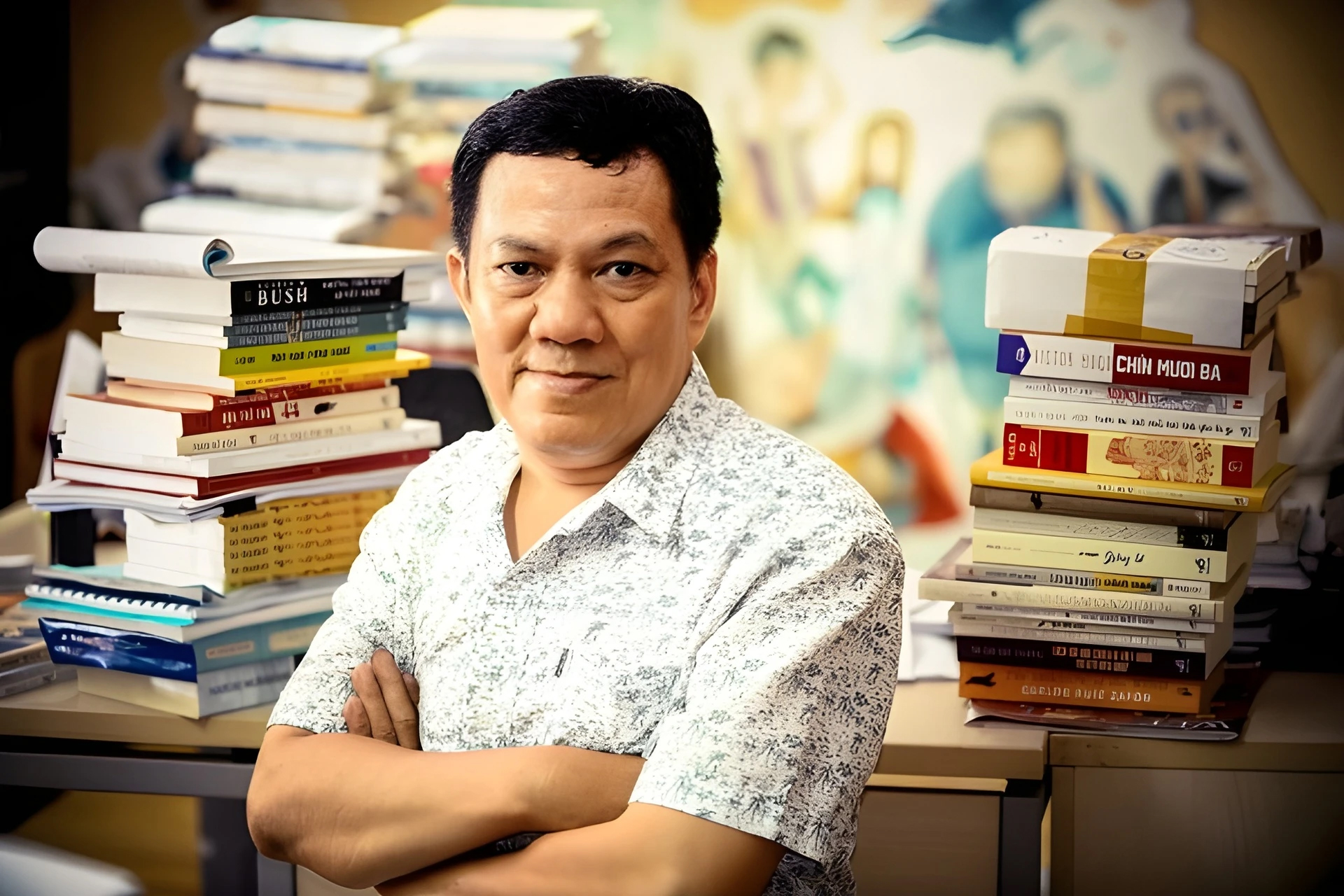
Professional writer and translator Tran Tien Cao Dang

You emphasize that writers export their works themselves. How do you export your works yourself?
First of all, there must be a good translation, of course. The problem is how to have a good translation? It is not that there are not translators good enough to produce high-quality Vietnamese-English translations, but the problem is that you cannot expect them to translate for free. While if I am not mistaken, most Vietnamese writers, and certainly in the world, are not rich. Without money to hire a good translator, the only way for a writer is to translate himself, if he is confident in his ability as I am doing. Here comes another problem: Where can he find enough time to translate his own work, when most of his time is spent on his main job, which is writing, and the only thing he can do is to earn a living?
And, let's say you somehow get a good translation; that's when the arduous journey of "crossing the gate of heaven" begins. How can you convince foreign publishers, especially Western ones, that your work is worth investing in, when they always have a rigid framework to "measure" Vietnamese writers and third world writers in general. What is that framework? For example: "Vietnam war". For example: "depicting a reality that Westerners rarely know (exotic)". For example: "traditional Vietnamese culture".
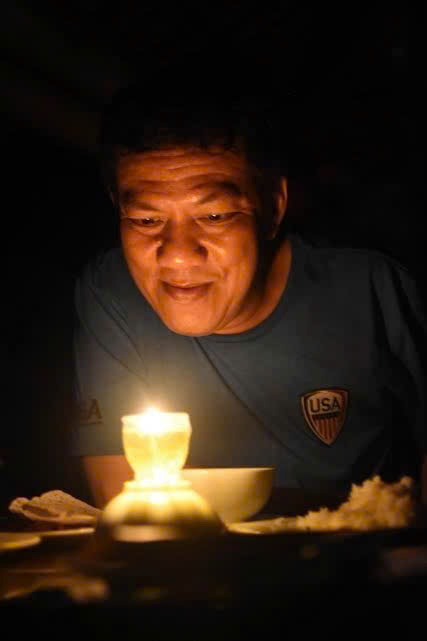
Translator Tran Tien Cao Dang is familiar to Vietnamese readers with many titles such as The Wind-Up Bird Chronicle, Sand Country, Guns, Germs and Steel...
That was also my experience when meeting international publishers and writers. When talking about Vietnamese literature, people still think of war or the exotic quality that is strange to the West, something that cinema is gradually surpassing. What do you think is the reason?
Talking about Brazil, for example, what do Vietnamese people know? 1) football; 2) coffee; 3) samba, lambada. What else? That is the exotic that Vietnamese people expect from Brazil. Likewise, war, or cải lương/quan họ/rội nước are typical exotic dishes of Vietnam in the Western mind. The job of Vietnamese writers is to break open that "prison", to go far, far outside that cage.
But Brazil uses Portuguese, which is one of the major languages in the world. Meanwhile, Vietnamese language is less known and it seems that Vietnam cannot be like Korea, which has a K-pop wave and now has a Nobel Prize, to make people learn their language?
Because Vietnamese is little known and Vietnamese literature is almost zero on the world literature map, the exotic state in the thinking of foreigners, mainly the West, about Vietnam is even more serious and serious. Song Lang or The Third Wife are not bad films; however, it can be seen that these films were not made without the intention of preparing exotic food for the West.
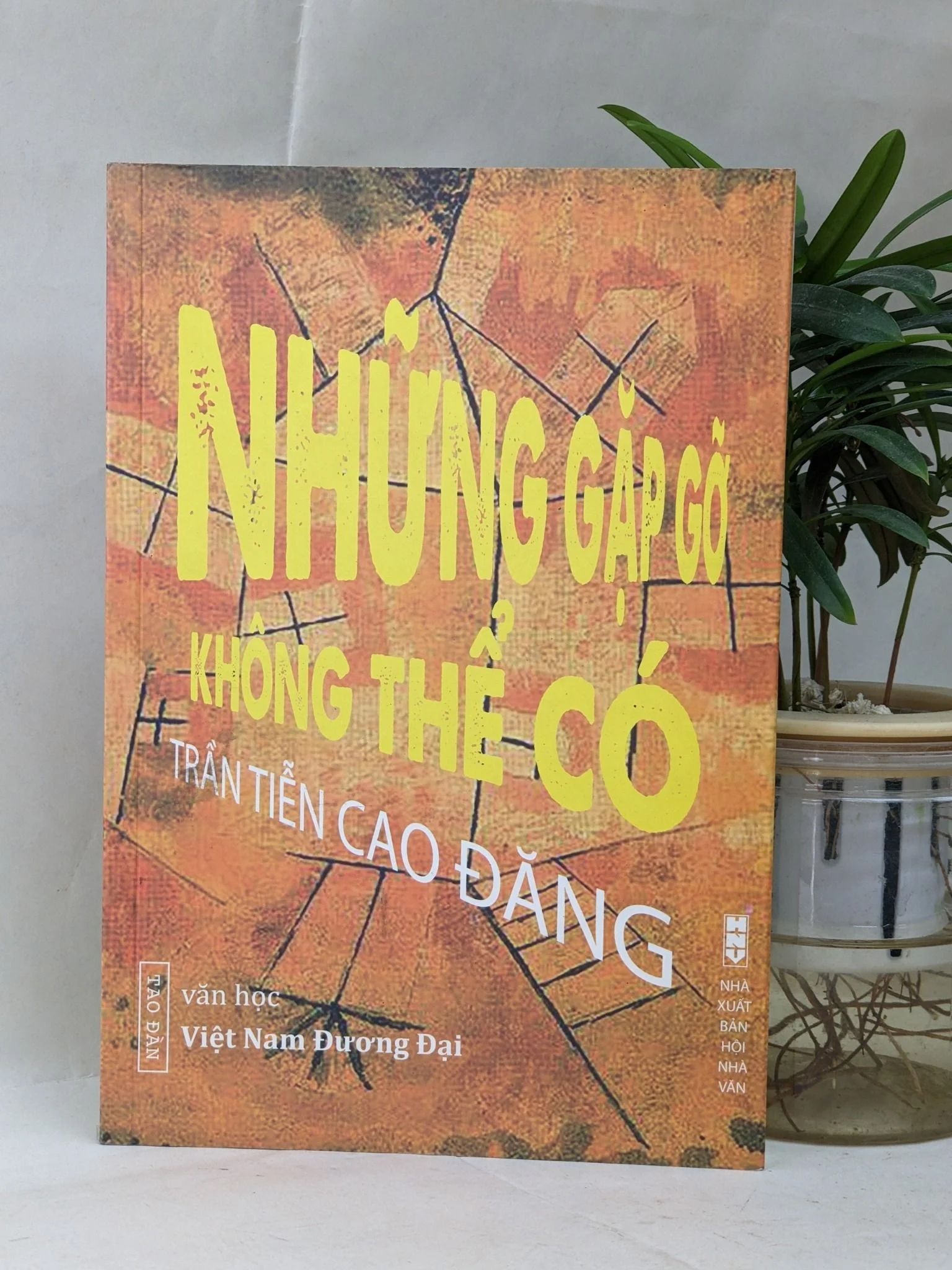
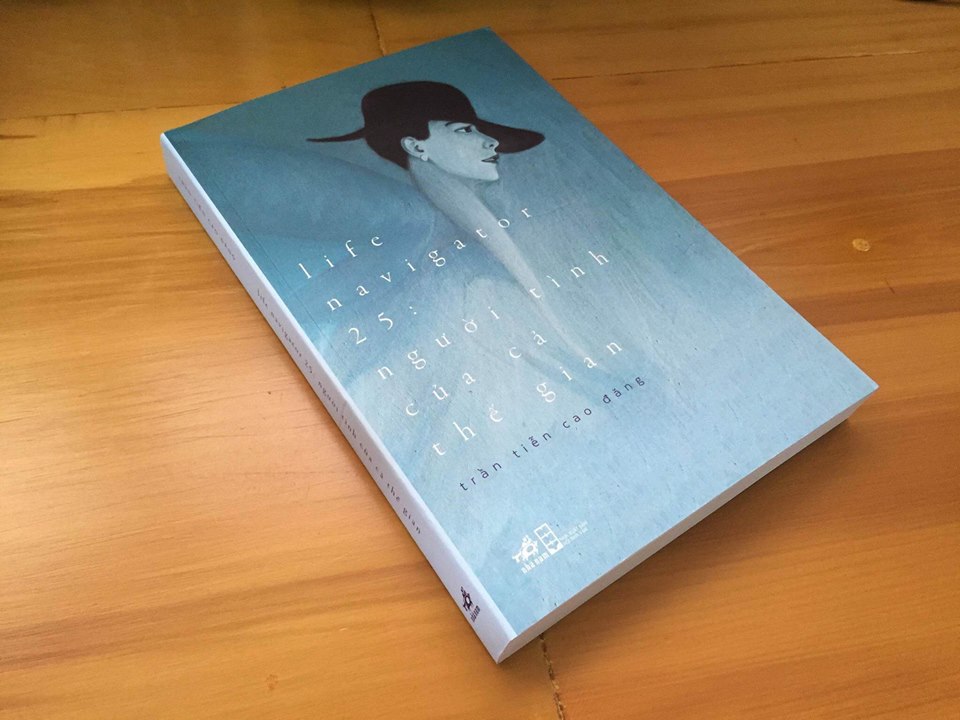
Some works of writer Tran Tien Cao Dang
Do you think literary awards, most notably the Nobel Prize, are a certificate of quality?
People have talked about this a lot. If you are awarded a major literary prize, from Nobel to Goncourt, Booker, Cervantes..., of course you will be more well-known, your works will sell better, but that does not mean you are automatically in the "exceptional" class of world literature. The judges of all literary prizes - from small to big - are all human, can make mistakes, can act and choose according to their own preferences, biases, calculations...
For example, the most recent Nobel Prize was awarded to the Korean writer Han Kang not necessarily because Han Kang is naturally among the world's leading writers, but most likely because: 1) it has been a long time since Mo Yan that an Asian writer has been awarded the Nobel Prize; 2) no Korean writer has been awarded the Nobel Prize while Korea is a powerhouse with an increasingly large position in the world, not only in terms of economics - politics - military - diplomacy but also in terms of culture, with the K-pop and K-drama tides dominating the globe, with many filmmakers winning the highest film awards. I am not saying that Han Kang is not good. I highly appreciate this female writer's The Vegetarian . I just want to emphasize that she was awarded the Nobel Prize not necessarily because of the quality of her literature but perhaps more because of "the right time, the right place, the right people".
So, no matter how hard a writer tries to export his work, is it possible to reach the Nobel Prize, when we implicitly understand that the Nobel Prize is not a personal story, but a story of the publishing industry?
As mentioned above, I would like to emphasize once again that exporting Vietnamese literature is not the work of individual writers. It is the work of the community, first of all the publishing industry, and then the state. As far as I know, some Vietnamese writers have been actively taking action, even in a situation of extreme isolation. When will the community start to move strongly with them?
On the other hand, some people have said, rightly so: The writer's mission is to write as well as possible, not to write to win the Nobel Prize. If he is truly outstanding, and if he meets "the right time, the right place, the right people", then, who knows, one day, a Vietnamese writer will win the Nobel Prize. But it, that Nobel Prize, is a shadow cast by a giant - you. It comes from you, not the other way around.
Besides your own works, do you intend to "reverse translate" the works of any Vietnamese authors in the future?
In this particular case, I allow myself to be “selfish”. I can only reverse engineer my own work. With the limited time I have, that is already too big a task.
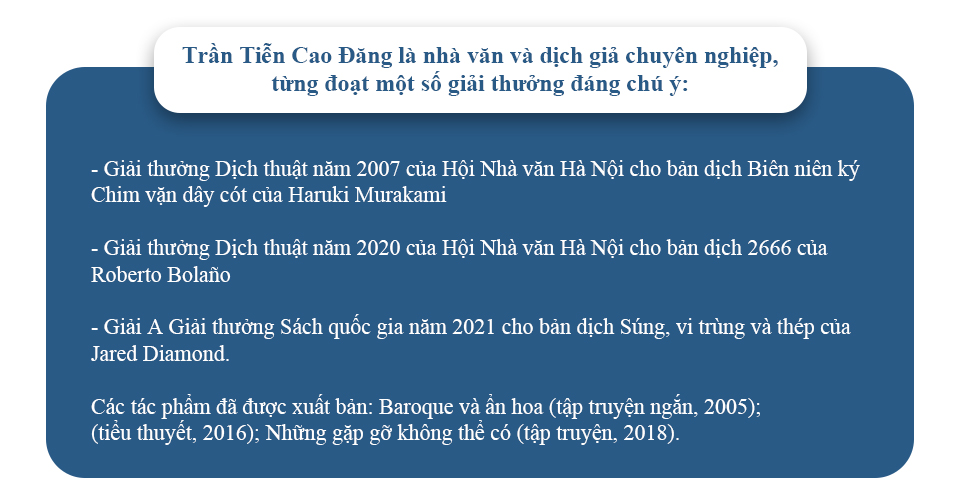
Source: https://thanhnien.vn/tran-tien-cao-dang-van-chuong-viet-gan-nhu-la-con-so-0-tren-ban-do-van-chuong-the-gioi-185241229001434312.htm












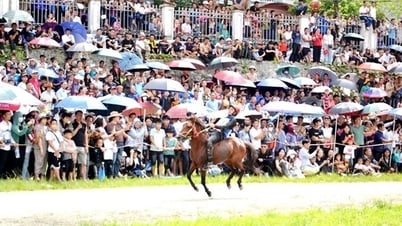

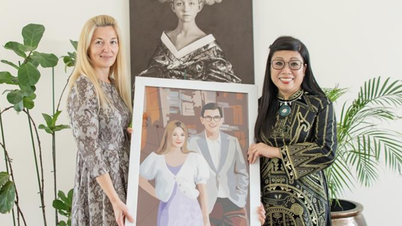
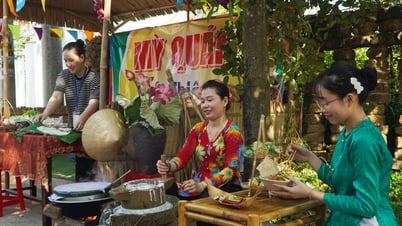
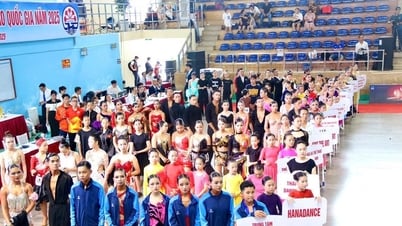








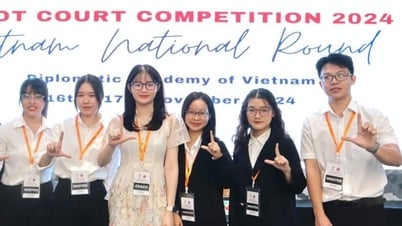
































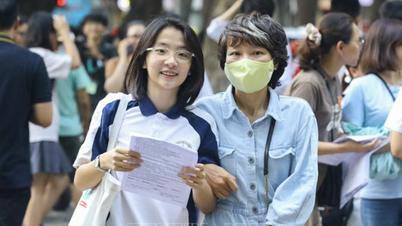
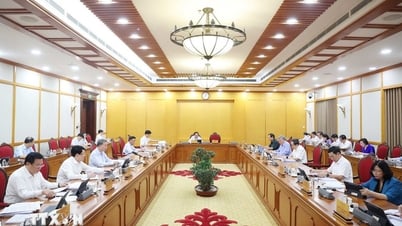












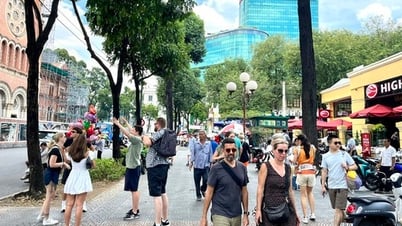
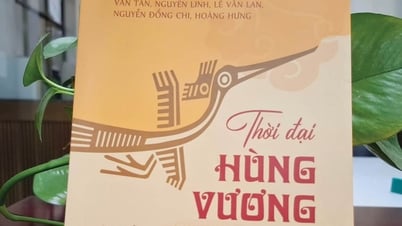







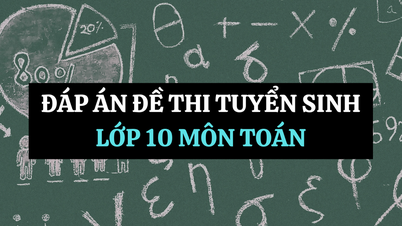

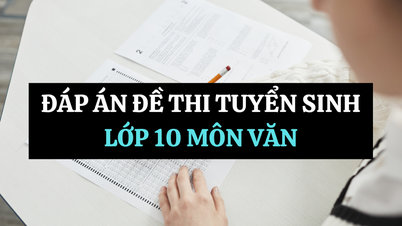







![[OCOP REVIEW] Tu Duyen Syrup - The essence of herbs from the mountains and forests of Nhu Thanh](https://vphoto.vietnam.vn/thumb/402x226/vietnam/resource/IMAGE/2025/6/5/58ca32fce4ec44039e444fbfae7e75ec)


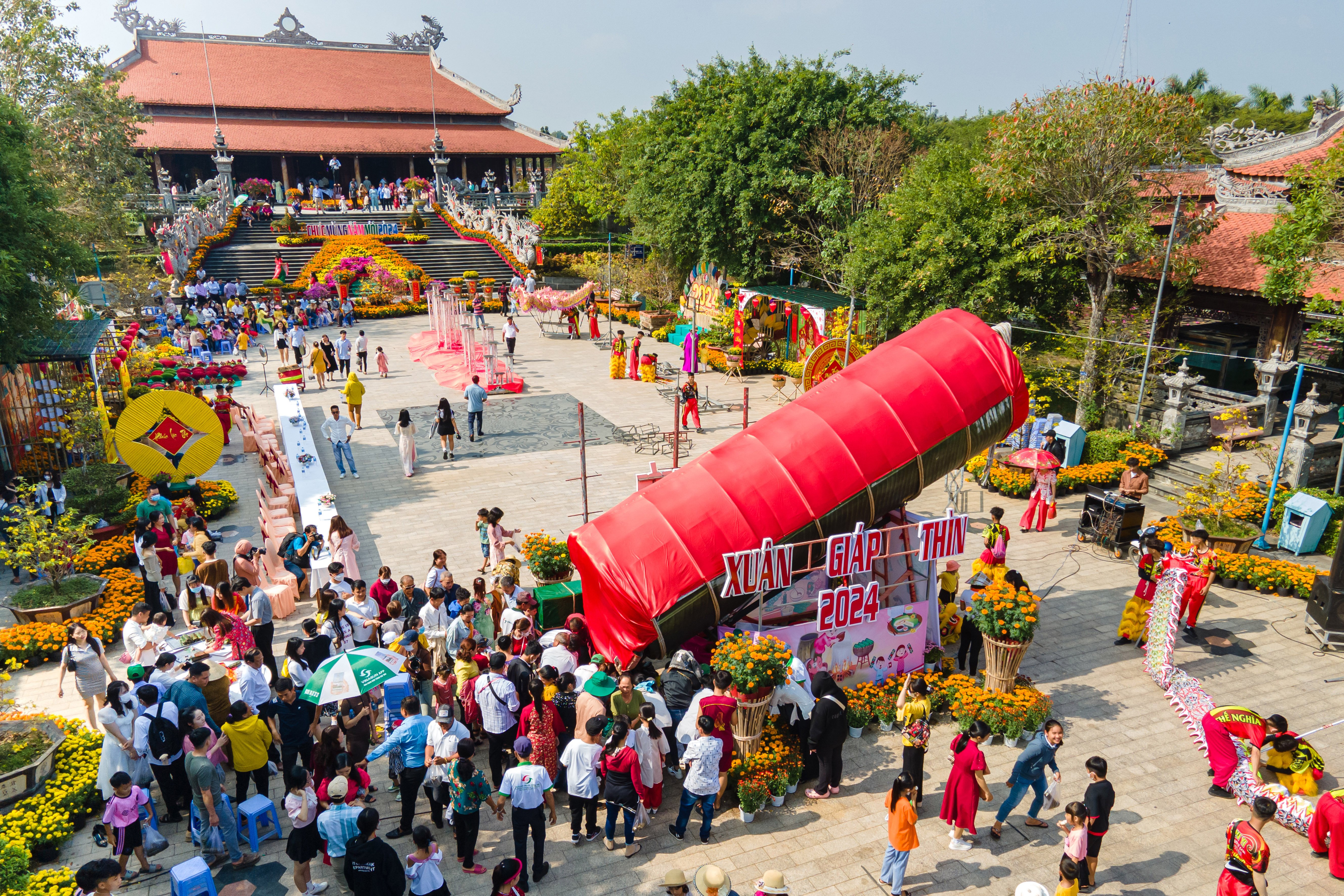
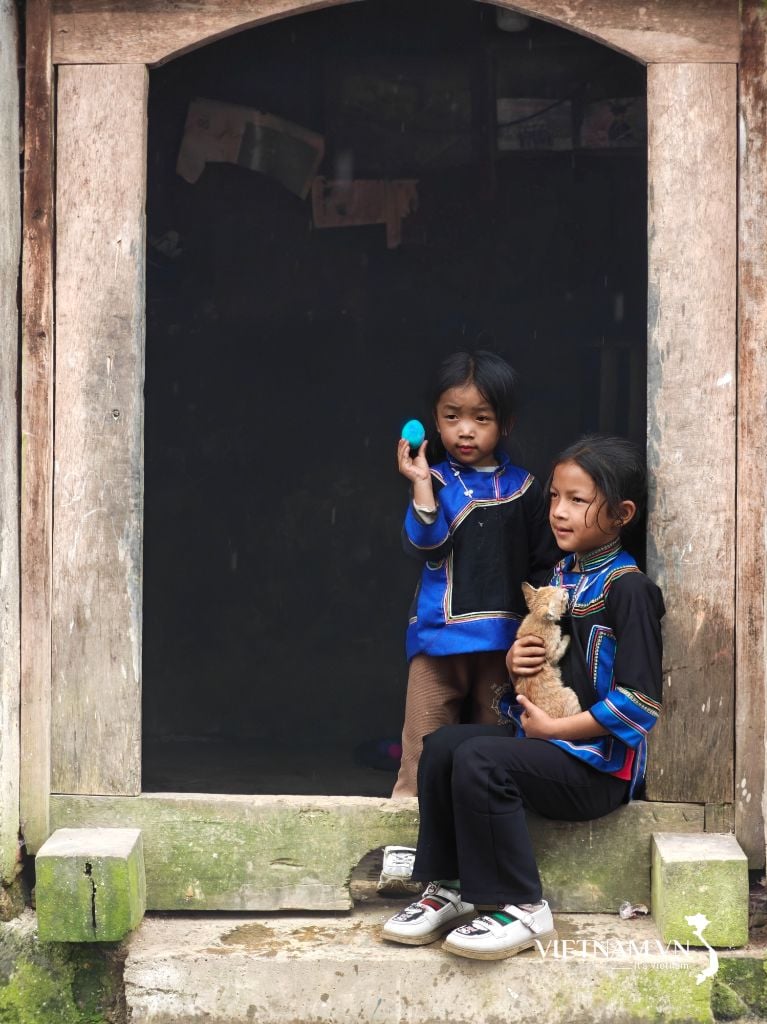


Comment (0)